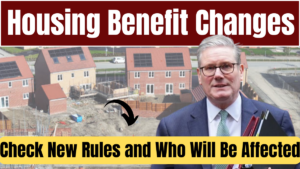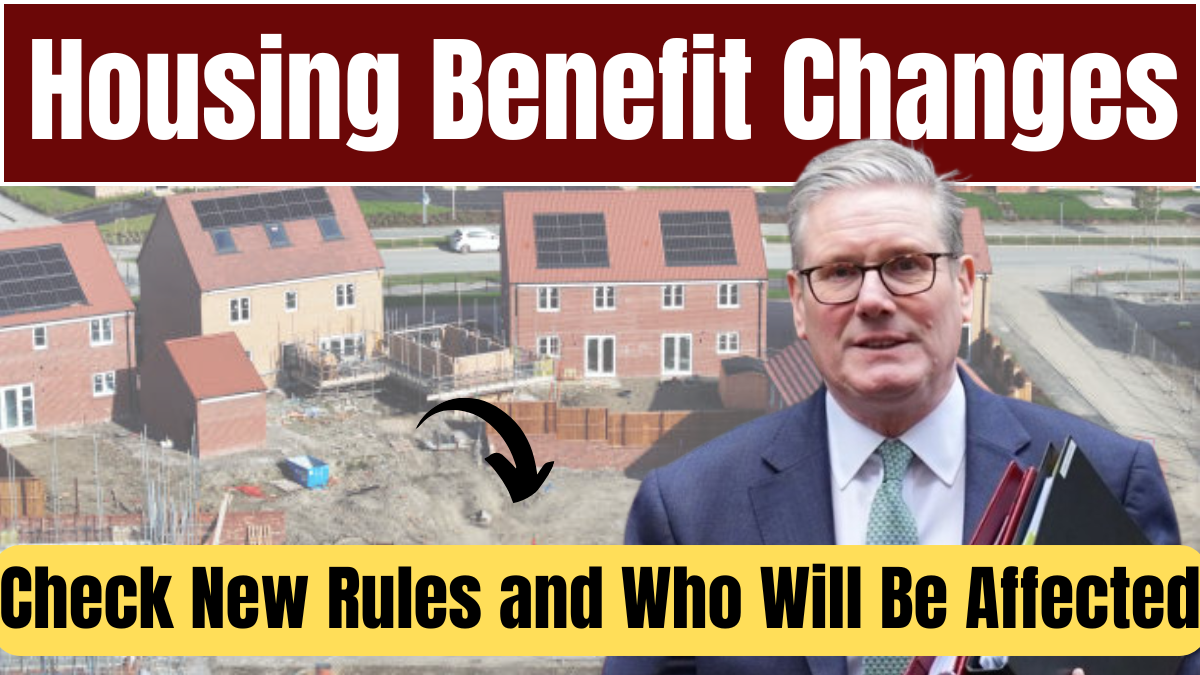The UK government has announced sweeping updates to the Housing Benefit program starting April 21, 2025. These reforms are part of a broader initiative to streamline welfare and align housing support with current economic conditions. Whether you’re a current recipient or planning to apply soon, understanding these changes is crucial.

Government to Enforce New Qualification Rules for Claimants
One of the key updates taking effect from April 21 includes a stricter eligibility framework. This means updated income thresholds and asset caps could disqualify many current recipients. Moreover, individuals receiving Universal Credit may see their Housing Benefit recalculated, potentially reducing their overall support.
Increased Employment Expectations for Working-Age Individuals
Working-age Housing Benefit claimants will face stricter job-seeking obligations from April 21. This includes demonstrating active employment efforts or increasing working hours. Pensioners and medically exempt individuals are unlikely to be affected but should still verify their exemption under the revised policy.
Payment Rate Adjustments Could Bring Mixed Financial Outcomes
The amount Housing Benefit recipients receive will also change. With inflation and regional rent trends being factored in, some beneficiaries may see an increase—especially in high-rent areas—while others might experience reductions. This shift aims to ensure benefit disbursement remains sustainable.
Regional Differences Will Influence Support Levels
From April 21, 2025, Housing Benefit amounts will reflect regional rent costs more closely. Major cities with high rental prices may see raised benefit caps, whereas towns with affordable housing markets may face tighter limits. Recipients are urged to verify their region’s updated cap.
Private Renters May Face Added Pressure Under New System
Private tenants may be among the hardest hit. With stricter benefit ceilings, many might find that Housing Benefit no longer covers their full rent. This may require negotiating lower rents, seeking shared accommodations, or exploring additional support programs.
Social Housing Tenants Can See Minor Adjustments or Stability
Social housing residents are expected to face minimal disruptions. Since these properties are rent-controlled, the revised calculations may only result in small changes. Still, it’s advisable to consult with local housing authorities to understand any personal impact.
Landlords Encouraged to Monitor Benefit Revisions
Landlords renting to Housing Benefit claimants should stay updated. Changes to payout schedules or amounts may necessitate adjustments in rental agreements. Proactive landlords can help tenants adapt to the changes while minimizing disruptions to rent collection.
Staying Prepared for the April 2025 Implementation
To ensure a smooth transition when the rules change on April 21, 2025, claimants and landlords should:
-
Reassess eligibility status
-
Track payment rate updates
-
Ensure financial and contact details are current with housing authorities
Being proactive could prevent sudden financial strain and ease the shift into the new system.
FAQs
What is changing in the Housing Benefit scheme in April 2025?
The scheme will see new income and asset rules, updated benefit amounts, and stronger job-seeking requirements for working-age individuals.
Will everyone receive less Housing Benefit?
Not necessarily. While some may receive reduced amounts, others—especially those in high-rent areas—might see increases under the revised caps.
Are pensioners affected by these updates?
Pensioners are generally exempt from stricter job-seeking rules but should still check how payment recalculations may affect them.
When do the new Housing Benefit rules come into effect?
The changes will officially begin on April 21, 2025. Payments and evaluations done after this date will reflect the new guidelines.
How do I check if I’m still eligible?
You can verify your eligibility by contacting your local housing authority or logging into the DWP portal after April 21, 2025.
What if Housing Benefit no longer covers my full rent?
If your new benefit amount is less than your rent, consider speaking with your landlord, applying for a discretionary housing payment, or reviewing your living arrangement.
Aanchal is a passionate writer with a keen interest in storytelling, content creation, and creative expression. She enjoys exploring diverse topics and crafting engaging narratives that captivate readers.

